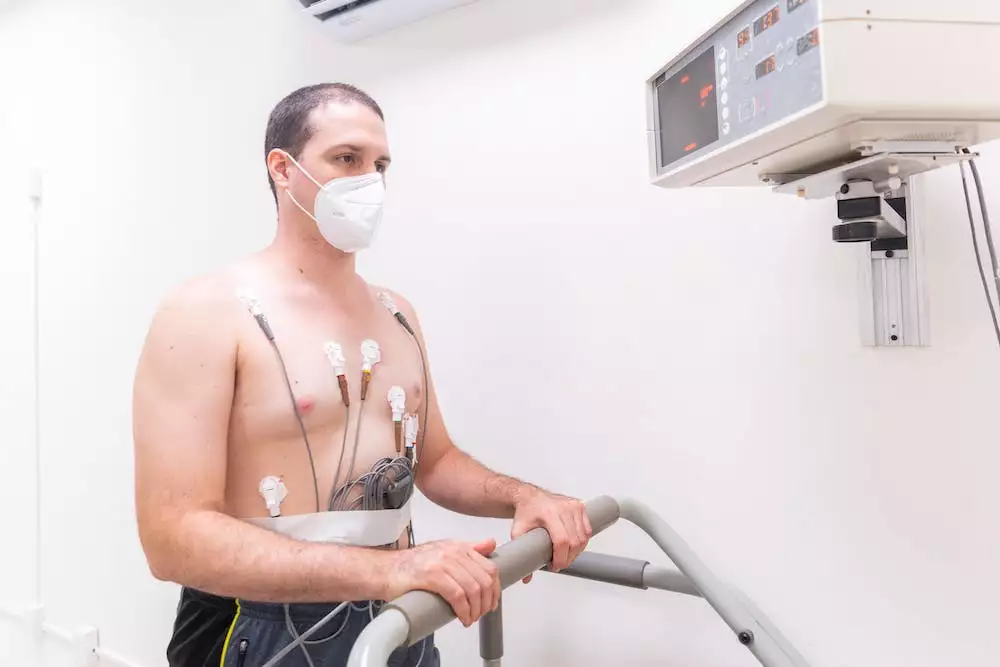Electrodes: the key to health and energy

- Definition of electrodes
- History of electrodes
- Use of electrodes in medicine
- 1. Electrodes in diagnostic tests
- 2. Electrodes in therapeutic procedures
- Risks associated with the use of electrodes
- 1. Possible allergic reactions
- 2. Infectious complications
- 3. Restrictions on use in certain patients
- New electrode technologies
- Resources
Electrodes are an integral part of many technological devices and processes. These small metal or graphite elements serve as conductors for electrical current, which is important for many applications from basic electronic circuits to advanced industrial equipment. Electrodes are also key elements for various types of electrochemical processes such as electroplating or electrolysis. In this article, we'll take a closer look at what electrodes are, how they work, how they are used, and how to choose the right ones for your application.
Definition of electrodes
Electrodes are a very important element in electrical and electronics engineering. They are electrically conductive materials that are used to connect to an electronic circuit or to a voltage source. Electrodes can be of different types and shapes, depending on the specific application. The most commonly used electrodes include anode and cathode electrodes, but also electrodes for welding or measuring electromagnetic quantities. It is important to make sure that the electrodes are chosen correctly for the purpose in order to achieve the best possible performance and reliability of the equipment.
History of electrodes
The history of electrodes dates back to the 18th century, when Italian physicist Luigi Galvani discovered that the muscles of frogs could be stimulated by electrical impulses. Later in 1800, the chemist Alessandro Volta created the first electrochemical cell, laying the foundation for the development of electrodes as part of electrotechnology. Since then, various types of electrodes have been invented for different purposes, such as lasers, detectors and diagnostic tools for medicine. Today, electrodes are an indispensable part of modern technology and are used in a wide range of fields, from energy to healthcare.
Use of electrodes in medicine
Electrodes are an essential part of many medical devices and help diagnose and treat a variety of medical conditions. They are used, for example, in electrocardiography, where they record the heartbeat to help detect heart problems. Another use is in electrotherapy, which stimulates nerves with electrical currents to help relieve pain and promote tissue healing. Electrodes are also often used in EEG tests, where they pick up electrical signals from the brain to help diagnose neurological problems. Electrodes are therefore very important in medicine and their use can improve the quality of life of patients.
1. Electrodes in diagnostic tests
Electrodes are key components of diagnostic tests that allow the recording of electrical signals in the patient's body. These signals can then be converted into graphs and analyzed to determine the status of the patient's health problem. Electrodes are used, for example, in electrocardiogram (ECG), electromyograph (EMG) and electroencephalogram (EEG) tests. The quality of electrodes has a major impact on the accuracy of the diagnosis, so it is important to choose the right type of electrodes for the test and ensure they are applied correctly.
2. Electrodes in therapeutic procedures
Electrodes are a critical element in a number of therapeutic procedures such as electromyography (EMG), electroneurography (ENG), and electrical muscle stimulation. When properly placed and used, electrodes can provide important information about the functioning of muscles and the nervous system. They are also used in electrotherapy to treat pain, inflammation and muscle disorders. Proper selection of electrodes involves many factors such as size, shape, material and placement on the patient's body. It is important to be hygienic when handling the electrodes and maintaining the equipment to minimize the risk of infection. Because each procedure is unique, it is important to consult with an expert on this topic to select the correct electrodes for each individual patient's specific needs.
Risks associated with the use of electrodes
The use of electrodes in various types of applications, such as medical, industrial or research, can be associated with risks. One of the main problems can be the use of poor quality electrodes, which can lead to incorrect and inaccurate results, and therefore an inappropriate solution to the problem at hand. Another risk is the possibility of injury from handling the electrodes or from incorrect application to the patient. Last but not least, there are risks associated with electric currents, especially with high voltage electrodes. Therefore, it is important to follow standard safety precautions and carefully consider the choice of electrodes for a given application.
1. Possible allergic reactions
Electrodes are important components of many medical and diagnostic devices. When using electrodes, it is important to consider possible allergic reactions that may occur. The most common allergens include metals that are used as electrode materials. If the patient is prone to allergies, he should inform his doctor and ask for an alternative electrode material. In some cases, allergic reactions to the electrodes can cause skin inflammation, itching or redness. It is important not to ignore these symptoms and to consult a doctor as soon as possible.
2. Infectious complications
One of the main risks of using electrodes is the development of infectious complications. When electrodes are applied, they penetrate the body, which becomes more susceptible to infections. Infections can be caused by bacteria, fungi or viruses and manifest themselves in various ways, such as fever, pain at the site of electrode application, redness or swelling.
It is therefore very important to follow the hygiene rules when handling the electrodes and also to sterilize them after each use. The use of disposable electrodes can significantly reduce the risk of infection, but care must be taken to disinfect and sterilize them if they are used repeatedly. All precautions must also be taken in accordance with current standards and guidelines to minimise the risk of infection to the patient.
3. Restrictions on use in certain patients
.The use of electrodes for diagnosis and therapy may be limited in some patients due to their medical condition. For example, in persons with pacemakers or other electronic implants, electrodes may cause malfunctions, including interference with signals, which may lead to poor functioning of these devices. Another group of patients are those with allergies to the materials from which the electrodes are made. In this case, skin irritation or even an allergic reaction could occur. Doctors should be cautious when using electrodes on patients with epilepsy or other neurological disorders, as electrical stimulation can trigger unpredictable reactions from the body. However, as long as these limitations are respected and precautions are taken to minimize risks, electrodes still remain a valuable tool for the diagnosis and treatment of many diseases.
New electrode technologies
In recent years, rapid changes have taken place in the field of electrodes, bringing new technologies and materials. These innovations are leading to significant improvements in electrode performance and their ability to withstand extreme conditions.
One of the latest technologies is so-called nanoscale electrodes, which allow highly sensitive measurement of electrical signals. These electrodes are so small that they can attach to individual cells or neurons and accurately monitor electrical activity in real time.
Further advances have been made through the use of new electrode materials such as graphene and carbon nanotubes. These materials have a much larger surface area on the electrode surface, allowing for more efficient electron transfer.
This rapid development in electrode technology opens up new possibilities for a wide range of applications, for example in medicine for measuring bioelectric signals and diagnosing disease, or in the energy sector for energy storage and fuel cell production.
With these new technologies and materials, a whole new chapter in electrode technology is opening up, bringing a host of benefits and potential applications for the near and distant future.
Overall, electrodes are a very important element in many fields. Not only are they crucial for electric current and various types of materials processing, but they are also used in medicine and cosmetics. Electrodes are becoming an essential tool for the diagnosis and treatment of many diseases. Despite their small size, they play a major role in the modern world and without them many technologies and medical procedures would not be possible.
Resources
Electrodes are an essential element in electrical engineering and chemistry. They are the conductors that allow electric current to be transmitted into electrochemical systems or between two points in an electrical circuit. Electrodes are used, for example, in welding, electrolytic processes, electroplating or measuring electromagnetic fields. There are many types of electrodes with different surface finishes and material compositions, ensuring the right function for specific applications. Quality electrodes are important to ensure the reliability and efficiency of electrical and chemical processes.
Published: 14. 08. 2023
Category: Health



